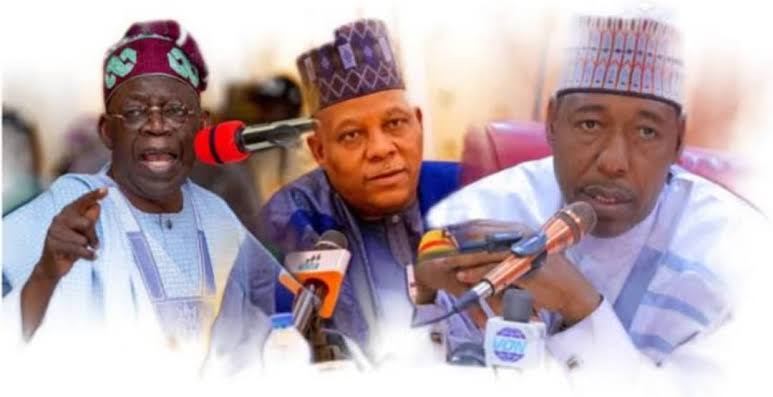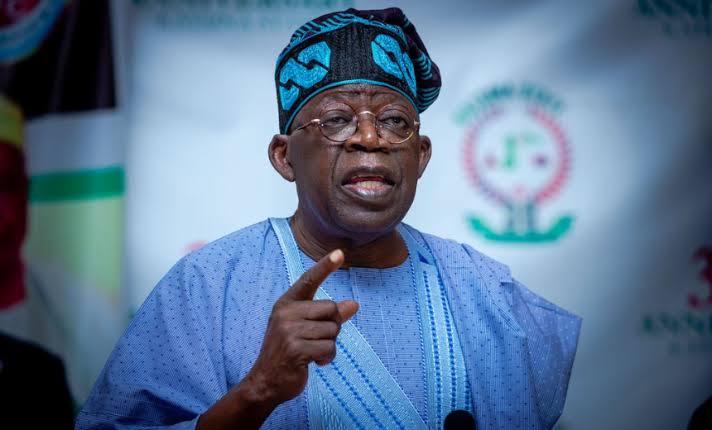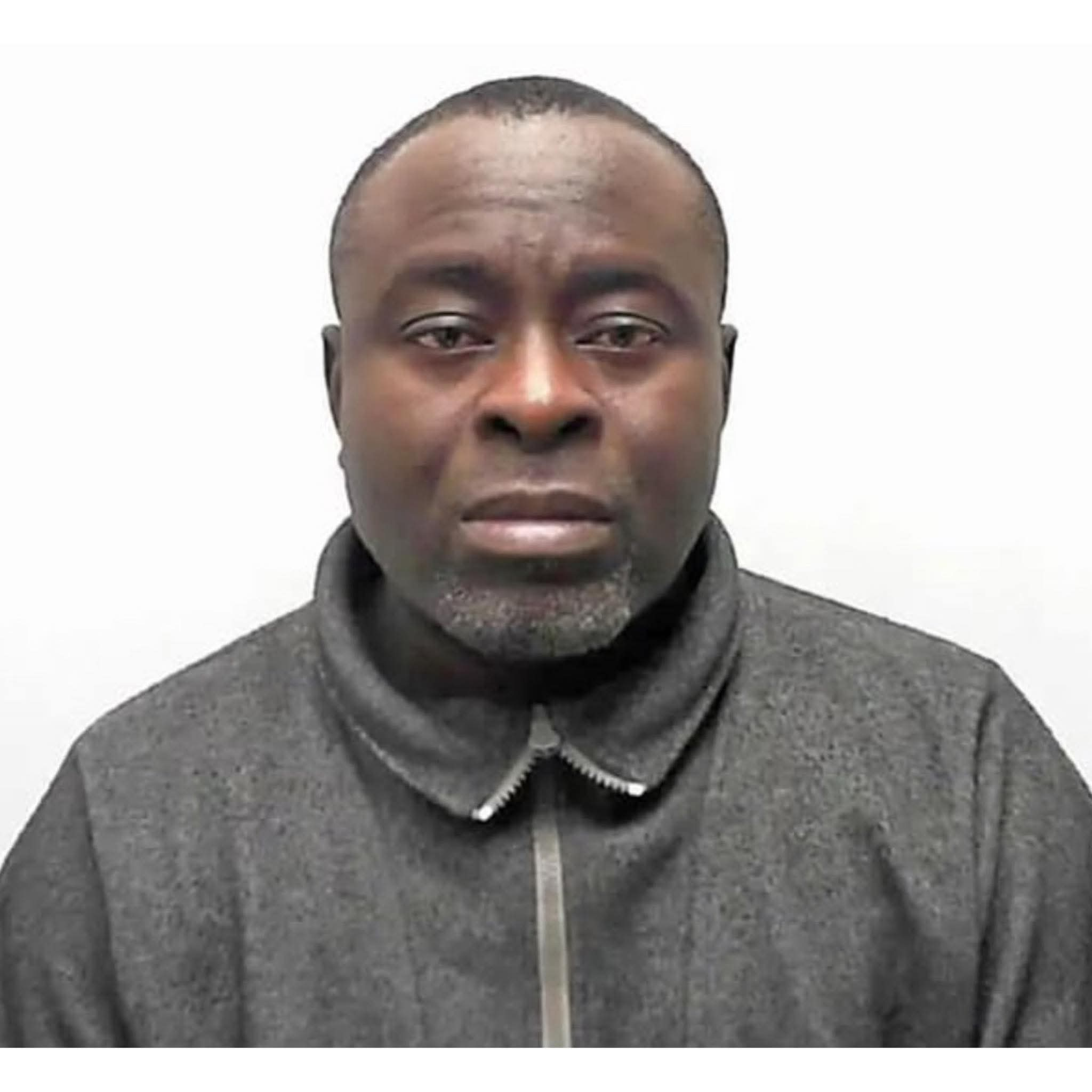A political crisis is threatening the unity of Nigeria’s ruling All Progressives Congress (APC) following a contentious endorsement of President Bola Tinubu for a second term in 2027, without the inclusion of Vice President Kashim Shettima.
The controversy unfolded on Sunday during a North-East APC stakeholders’ meeting in Gombe State, where the party’s National Chairman, Abdullahi Ganduje, and North-East Zonal Vice Chairman, Mustapha Salihu, publicly backed Tinubu for re-election. However, the endorsement noticeably omitted Vice President Shettima, sparking outrage among party members and stakeholders from the region.
Governor Babagana Zulum of Borno State, a key ally of the vice president, led a protest at the event, expressing deep dissatisfaction with the exclusion of Shettima from the 2027 endorsement. The protest quickly escalated into chaos, forcing Ganduje and Salihu to be escorted out of the venue under heavy security protection as tensions rose among delegates.
The incident has exposed significant fault lines within the APC, especially in the North-East, where Shettima hails from and where the party has enjoyed strong support. Delegates and political observers described the exclusion of Shettima from the 2027 ticket as a deliberate slight, raising concerns over the internal power dynamics within the ruling party.
The meeting ended abruptly as disorder took over, signaling deeper grievances among party members over what they perceive as a lack of consultation and respect for regional representation within the APC’s leadership structure.
Reacting to the incident, public affairs analyst Abdul-Aziz Na’ibi Abubakar described the protest as a potential turning point in the party’s cohesion. In a post on X (formerly Twitter), Abubakar stated, “The beginning of the APC’s downfall has just begun as Governor Zulum led a protest against the APC North-East meeting for failing to endorse Kashim Shettima ahead of 2027!”
Reports indicate growing tension in the North-East since the endorsement. Many within the region view Shettima’s omission as a signal that the presidency may not be willing to maintain the current ticket pairing, a move that could alienate a crucial voting bloc ahead of the next election cycle.
Last month, Ganduje had already declared Tinubu as the party’s sole presidential candidate for 2027 during a national APC summit in Abuja. However, that announcement did not clarify whether Shettima would remain on the ticket as vice president, a detail that is now at the center of escalating internal discord.
The timing of this new controversy is particularly sensitive. Just days ago, President Tinubu mocked the disunity of the opposition during his Democracy Day speech at the National Assembly. Now, critics argue that similar cracks may be appearing within the APC itself, starting from the heart of the North-East.
Governor Zulum’s protest highlights growing dissatisfaction within the party’s northern ranks. As a respected figure in the region and a close political associate of Shettima, Zulum’s public defiance carries weight and could influence the loyalty of other regional stakeholders.
The events in Gombe have prompted speculation about whether the APC’s 2027 strategy is being crafted without broad internal consultation, potentially risking a deeper fracture in its national coalition. Analysts suggest that the exclusion of Shettima could have wider implications, particularly in northern Nigeria, where regional and religious balancing plays a critical role in political ticketing and party cohesion.
The APC has yet to issue an official statement addressing the fallout from the Gombe meeting or clarifying the party’s stance on Shettima’s role in the 2027 ticket. However, party insiders say there is increasing pressure on the leadership to provide assurances or risk further alienating its North-East base.
With the next presidential election still over two years away, the early emergence of such disputes may foreshadow a turbulent primary season for the APC. Unless reconciliatory efforts are made swiftly, the current rift could escalate into a broader crisis that threatens the unity of the party ahead of 2027.





